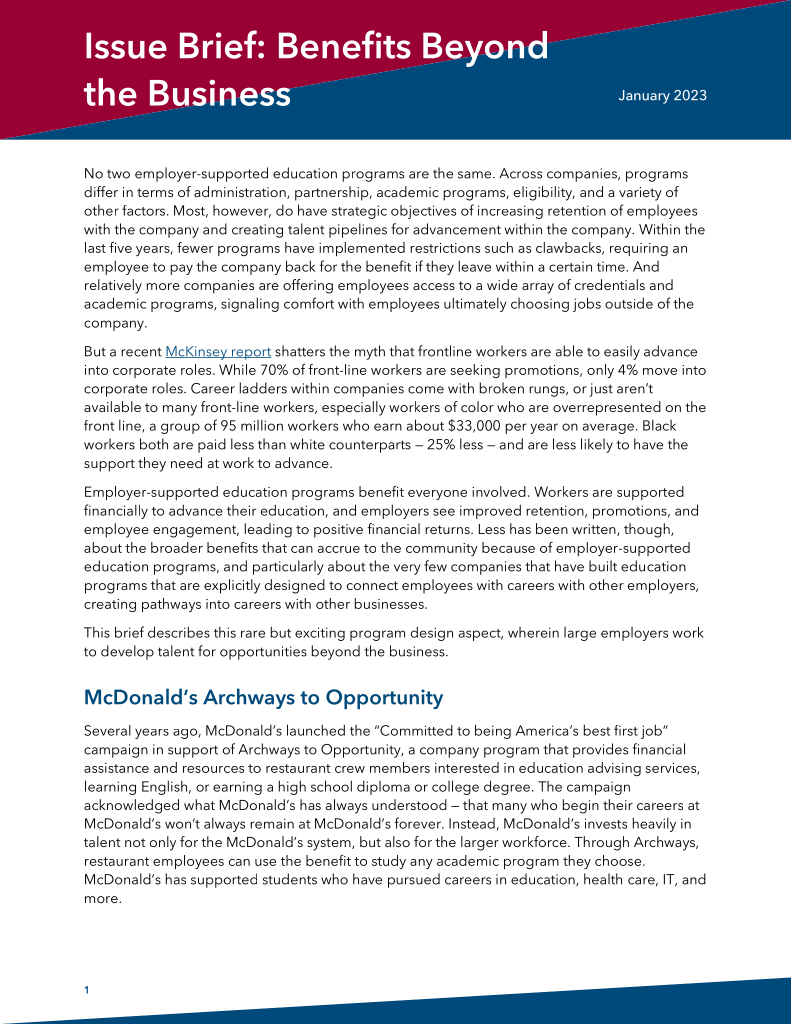No two employer-supported education programs are the same. Across companies, programs differ in terms of administration, partnership, academic programs, eligibility, and a variety of other factors. Most, however, do have strategic objectives of increasing retention of employees with the company and creating talent pipelines for advancement within the company. Within the last five years, fewer programs have implemented restrictions such as claw backs, requiring an employee to pay the company back for the benefit if they leave within a certain time. And relatively more companies are offering employees access to a wide array of credentials and academic programs, signaling comfort with employees ultimately choosing jobs outside of the company.
But a recent McKinsey report shatters the myth that frontline workers are able to easily advance into corporate roles. While 70% of frontline workers are seeking promotions, only 4% move into corporate roles. Career ladders within companies come with broken rungs or just aren’t available to many frontline workers, especially workers of color who are over-represented on the frontline, a group of 95 million workers who earn about $33,000 per year on average. Black workers are both paid less than white counterparts — 25% less — and less likely to have the support they need at work to advance.
Employer-supported education programs benefit everyone involved. Workers are supported financially to advance their education, and employers see improved retention, promotions, and employee engagement, leading to positive financial returns. Less has been written, though, about the broader benefits that can accrue to the community because of employer-supported education programs, and particularly about the very few companies that have built education programs that are explicitly designed to connect employees with careers with other employers, creating pathways into careers with other businesses.
This brief, featuring McDonald’s Archways to Opportunity, Amazon’s Career Choice, and UPS Metropolitan College programs, describes this rare but exciting program design aspect, wherein large employers work to develop talent for opportunities beyond the business.
Share
Tweet Doing good while doing well — employer benefit programs create opportunities for employees, the business, and the community.
Tweet “Considering out-placement of workers participating in education programs can be a smart choice — one that pays off for everyone.”
Tweet “By investing in employees’ education… companies clearly benefit from improved retention as well as increased promotions, workers gain access to education and training without incurring debt, and communities benefit from improved talent.”
Join the upskilling movement
UpSkill America is an employer-led movement that promotes training and advancement practices to help workers progress in their careers and move into better-paying jobs. UpSkill America is an initiative of the Economic Opportunities Program.
The Economic Opportunities Program advances strategies, policies, and ideas to help low- and moderate-income people thrive in a changing economy. Follow us on social media and join our mailing list to stay up-to-date on publications, blog posts, events, and other announcements.


